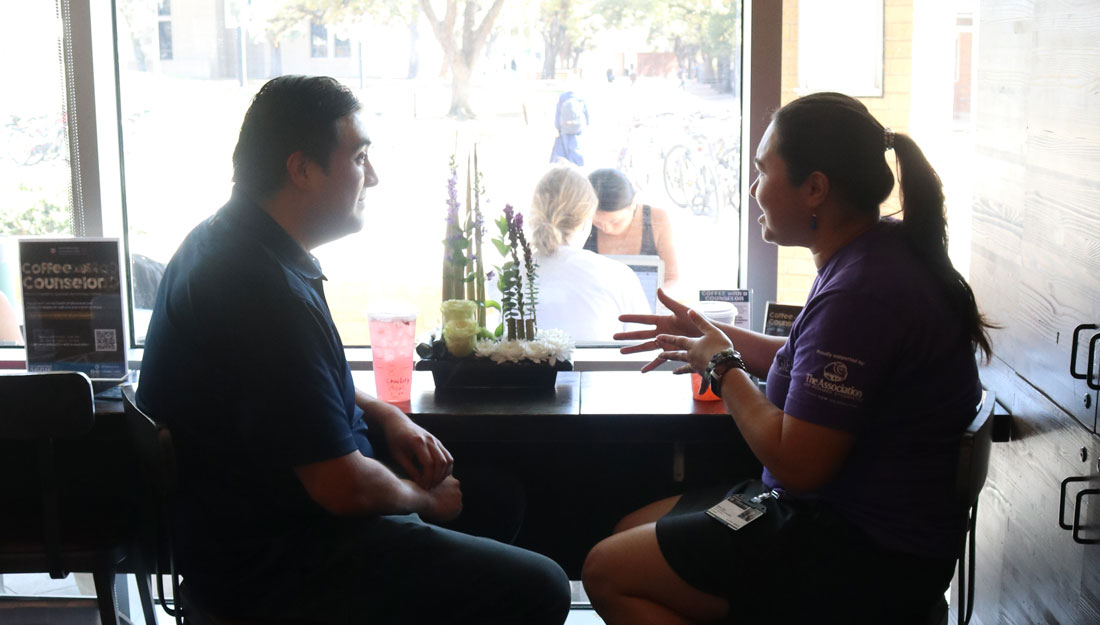- Lasha Markham
- Health Tips, Healthy Living, Show on VR homepage, University Health Services
A new kind of resolution: Prioritizing mental health in the new year
As the pendulum swings between holiday high and post-season low, a professional offers advice for prioritizing your mental health

Post-holiday blues are common after the holidays with many experiencing feelings of loneliness, sadness and fatigue lasting well in to the new year. (Adobe Stock)
For some, the holiday season is a time of rest, relaxation and celebration. But for others, it can be a perfect storm for anxiety, depression and other mental health struggles. As the calendar turns to Jan. 2, the return to routine often brings financial stress from holiday spending and an emotional crash after weeks of excitement and joy—leaving many in a degraded state of mental health. This new year, consider setting a new kind of resolution: prioritizing your mental health.
Michelle Bettin, PsyD, MSW, LP, LICSW, senior director of counseling and mental health care at Texas A&M University Health Services, says this time of year is particularly difficult for many people. While some may struggle with the aftereffects of leaving loved ones, others may struggle going home to a family that isn’t great for their mental health or may struggle with not having family to spend time with at all.
“It can be a reminder of people that are no longer with us,” she said. “It also can highlight how our family or our relationships are not like the families and holidays we see on the TV and in movies.”
It’s easy, she added, to slip into a deficit mindset as you compare your celebrations to what others post on social media.
What’s more, the reduced natural sunlight during this time of year, combined with changes in diet, exercise and routines, can leave mental health in a vulnerable state even before the holidays approach.
Bettin said the best thing to do is give grace to yourself and others. She advised against feeling like you must meet arbitrary standards or constantly uphold unrealistic expectations, whether set by yourself or others. It can be easy to see other people adhering to their goals and resolutions and let self-doubt creep in when you slip.
Instead, Bettin recommends approaching resolutions with small, attainable goals for the new year. When deciding to prioritize mental health, set “SMART goals,” which stands for specific, measurable, attainable, relevant and time-bound. Using this method allows you to set realistic goals that fit into your lifestyle.
Instead of setting a lofty goal like “cure my anxiety” or “be happy every day,” Bettin recommends setting small goals, such as “get to therapy once a month” or “set aside 15 minutes for a walk or meditation.”
It’s essential to prioritize what matters most in your journey and make time for self-care. Even if you don’t have pre-existing mental health conditions, self-care plays a crucial role in managing the stresses of daily life. This may look different for everyone, and it might take time to determine what works best for you.
If you are struggling, don’t hesitate to seek help. A wide range of national and local resources are available to provide support. University Health Services offers a list of local and national hotline numbers on its website under “Emergency & After-Hours Care.” You can also reach out to 211 Texas through its website or by dialing 211 to access a variety of services, including urgent and non-urgent mental health care.
Balancing the different facets of life can sometimes feel overwhelming or even impossible. Maintaining a positive attitude and asking for help when you need it, Bettin stressed, can have a profound impact.
“We can plan all we want, but life happens while we’re making plans,” she said. “Being willing to accept that sometimes things don’t go exactly as planned—and finding, even in those moments, what there is to be grateful about and what really brings you joy—can make all the difference.”
Media contact: media@tamu.edu


